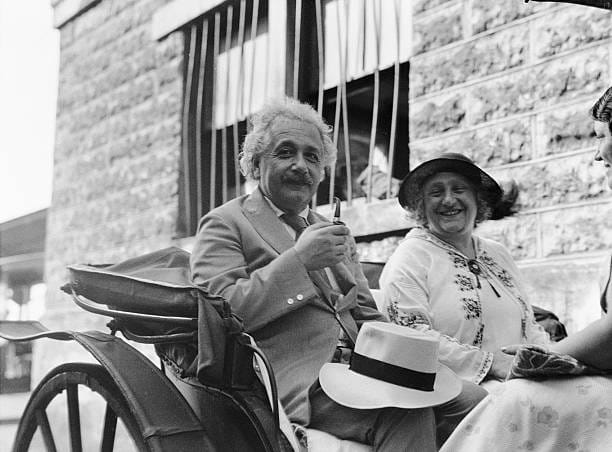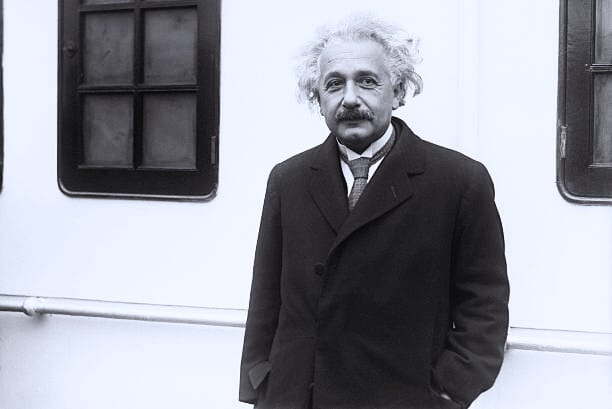Last updated January 26, 2025
Albert Einstein, one of the greatest scientific minds in history, has often been the subject of speculation regarding his neurological and developmental traits. A common question that arises is, “Was Einstein autistic?” While there is no definitive diagnosis—Einstein lived in an era before autism spectrum disorder (ASD) was formally identified—his life and behaviors have led some researchers and experts to hypothesize that he may have exhibited characteristics consistent with autism.
This article delves into the evidence, historical accounts, and perspectives on the idea that Albert Einstein might have been on the autism spectrum, exploring both supporting arguments and counterpoints.
Understanding Autism Spectrum Disorder (ASD)
Before exploring the possibility of Einstein being autistic, it is essential to understand what ASD entails. Autism spectrum disorder is a developmental condition which is characterized by challenges in:
- Social interaction: Difficulties in understanding and navigating social relationships.
- Communication: Variations in verbal and non-verbal communication styles.
- Repetitive behaviors: A tendency for routines, rituals, or focused interests.
- Sensory sensitivities: Heightened or diminished responses to sensory input such as sound, light, or touch.
Autism is a spectrum, meaning it presents differently in every individual, ranging from subtle traits to significant challenges.
Traits of Einstein That Suggest Autism
Einstein’s personality and behaviors, as documented in historical records and biographies, have led some to theorize that he may have exhibited traits associated with autism. Here are some points often cited in this discussion:
1. Delayed Speech Development
One of the most frequently mentioned aspects of Einstein’s early life is his delayed speech. It is reported that he did not begin speaking in full sentences until the age of 4, a phenomenon sometimes referred to as “Einstein syndrome.” Delayed speech is a common characteristic among some individuals on the autism spectrum.
2. Intense Focus and Obsessions
Einstein’s fascination with physics and mathematics began at a young age, and his ability to focus intensely on these subjects is notable. This kind of deep, specialized interest is often seen in individuals with autism, who may exhibit remarkable expertise or passion in specific areas.
3. Social Challenges
While Einstein maintained professional relationships and friendships, he was sometimes described as socially awkward or detached. Some accounts suggest that he struggled to conform to societal norms, which can be a characteristic of autism.
4. Unconventional Thinking
Einstein’s groundbreaking theories often emerged from thinking outside the box and challenging traditional assumptions. While not exclusive to autism, this kind of creative and non-linear thinking is sometimes linked to neurodiverse individuals.
5. Sensitivity to Stimuli
Some reports indicate that Einstein preferred solitude and may have been sensitive to noise or interruptions. Sensory sensitivities are a hallmark of autism, though these traits alone do not confirm a diagnosis.
Counterpoints: Why Einstein May Not Have Been Autistic
While the arguments above are compelling, there are also reasons to question the hypothesis that Einstein was autistic:

1. Lack of Comprehensive Historical Evidence
The information we have about Einstein’s behavior is largely anecdotal and comes from second-hand accounts, making it difficult to draw definitive conclusions.
2. Broad Spectrum of Autism
Traits like delayed speech or intense focus are not exclusive to autism. They can also occur in individuals with other neurological or developmental differences—or in neurotypical individuals who exhibit unique personality traits.
3. Success in Professional Relationships
Einstein’s ability to collaborate with peers, engage in debates, and participate in academic discourse suggests that he possessed strong social and communication skills in certain contexts. While people with autism can also have these skills, his professional success does not align with the more profound social challenges seen in some individuals with ASD.
The “Spectrum” Nature of the Debate
The question of whether Einstein was autistic highlights the broader conversation about neurodiversity and its historical representation. Autism is a spectrum, and its traits can overlap with those seen in highly creative or intellectual individuals. The fact that Einstein’s behaviors and quirks resonate with some descriptions of autism has led to valuable discussions about the contributions of neurodiverse individuals throughout history.
The Importance of Neurodiversity in Historical Figures
Regardless of whether Einstein was autistic, the broader conversation about neurodiversity underscores the value of different ways of thinking. Historical figures like Einstein, who challenge norms and push the boundaries of knowledge, demonstrate that diversity in thought and behavior is an asset to society.
1. Celebrating Strengths
The traits that make someone different can also be their greatest strengths. Einstein’s ability to think deeply, focus intensely, and approach problems creatively revolutionized science.
2. Challenging Stigmas
Speculating about Einstein’s potential autism helps challenge outdated stereotypes about autism as a deficit rather than a difference. It highlights the contributions of individuals with varied neurological profiles.
Why Speculation Should Be Handled Carefully
While it is intriguing to consider whether Einstein was autistic, it is important to approach the topic responsibly:
- Respecting Individuality: Einstein’s legacy should not be reduced to speculation about his neurology.
- Avoiding Retrospective Diagnoses: Applying modern diagnostic criteria to historical figures is inherently speculative and may oversimplify their experiences.
- Focusing on Awareness: The discussion should aim to promote understanding and acceptance of neurodiversity rather than labeling individuals retrospectively.
Conclusion
So, was Albert Einstein autistic? The truth is, we may never know. While he exhibited traits that align with autism, such as delayed speech and intense focus, other aspects of his life and behavior suggest otherwise. What is clear, however, is that Einstein’s unique mind and approach to problem-solving have left an indelible mark on science and humanity.
The question of Einstein’s potential autism is less about diagnosis and more about celebrating diversity in thought, behavior, and contributions to society. Whether or not he was on the autism spectrum, his legacy serves as a reminder of the power of embracing different perspectives and ways of thinking. The ongoing exploration of neurodiversity only enriches our understanding of how all individuals, regardless of neurological profile, can make meaningful contributions to the world.
